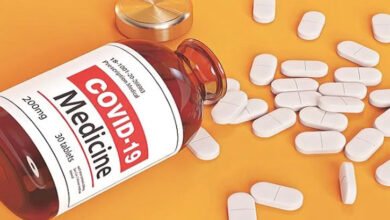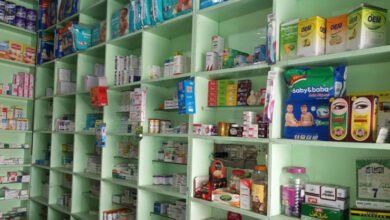Pharma companies demand raise in medicine prices due to rupee devaluation

It may be appreciated that the local pharmaceutical industry is heavily dependent on the import of raw materials, in order to ensure uninterrupted availability of medicines in the country.
Unfortunately, the pharmaceutical industry suffered a devastating blow as prices of the Active Pharmaceutical Ingredients i.e. raw material used in the manufacturing of drugs increased exponentially in the international market since the outbreak of COVID 19 Corona Virus pandemic.
Simultaneously, factors of production like cost of fuel, electricity, freight charges and packing material witnessed unprecedented increase during the same period. It is to be noted that the Pakistani Rupee has devalued by more than 67 percent against the United States Dollar since July, 2020.
Read also
PSX launches Exchange Traded Fund Sponsored by HBL
Despite the foregoing, the pharmaceutical industry played a pivotal, patient-centric and responsible role during the COVID 19 Corona Virus pandemic, dengue fever crises and public health crises emanated due to massive monsoon rainfalls and unprecedented levels of flooding by ensuring uninterrupted availability of life saving medicines to its own detriment.
In order to avert an imminent catastrophe, the pharmaceutical industry continuously and repeatedly requested and implored the Federal Government and the Drug Regulatory Authority of Pakistan (the “DRAP”) to take appropriate, concrete and remedial measures by inter alia allowing inflationary adjustments in the maximum retail prices of medicines, which if not addressed would result in the inevitable collapse of the local pharmaceutical industry. The pharmaceutical industry continuously drew the attention of the Federal Government and the DRAP towards the fact that the impediment of growth in the pharmaceutical industry would have one critical effect; the denial of access of patients and the public at large to safe, effective, potent, beneficial, efficacious and economical drugs.
The Federal Government and the DRAP have failed to take any measures whatsoever to protect the public en masse and remedy the ongoing situation, which has resulted in the collapse of the pharmaceutical industry as it is unable to ensure further production of safe, efficacious, and qualitative therapeutic goods with rational use at reasonable prices to the general public. It goes without saying that reasonable prices not only mean those which are reasonable for the public at large but also for those at which the pharmaceutical industry can manufacture, import, distribute, market and sell the same at as well. This is a fundamental right guaranteed to the members of the pharmaceutical industry under Article 18 of the Constitution of the Islamic Republic of Pakistan 1973.
Needless to say, the situation has further aggravated as Pakistani Rupee has devalued by approximately 32% against the United States Dollar since July 2022. Most importantly, since the beginning of the month of January, 2023, Pakistani Rupee has devalued by approximately fifty rupees against the United States Dollar. Furthermore, the Consumer Price Index rose by 27.6 % in the month of January, 2023 compared to the same period last year. On account of the volatile economic situation presently prevalent in the country, it is projected that the Pakistani Rupee will continue to further devalue and CPI will continue to increase.
Notwithstanding this critically important matter, which is bound to severely affect the general public, the complete apathy of the Federal Government and the DRAP, in failing to take any remedial steps has resulted in a force majeure being triggered in respect of the pharmaceutical industry’s obligations to ensure uninterrupted availability of medicines in the local market and to the public at large, which as a result of the aforementioned situation, has now become impossible.
In view of the foregoing and being compelled and constrained by the circumstances beyond the control of the pharmaceutical industry, it has become completely unsustainable to manufacture medicines and ensure their availability beyond the next 7 days.



